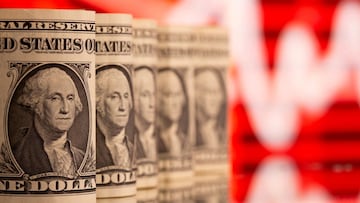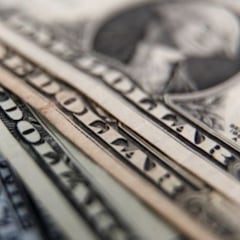What was the inflation rate in 2021? What has the inflation rate been in the last 10 years?
Inflation increased at the fastest rate in a generation last year, driving up costs across the nation which few can afford in a time of economic turmoil.


In one year alone, the Consumer Price Index (CPI) for 2021 jumped by 7 percent, the largest yearly increase since 1982.
It is one of, if not the, largest problem facing embattled President Joe Biden. He has yet to pass his signature Build Back Better bill, a component of the bill being measures to tackle the high inflation. With crucial elections this year which look likely to strip him of majorities in Congress, inflation needs to be tackled as soon as possible, or face the wrath of voters.
The Federal Reserve sets itself inflation targets for what it feels are good for the economy, but the latest data suggests the US economy is far from a healthy track.
Related stories:
- Which grocery stores accept food stamps?
- Does social security count as income?
- Why won't there be a fourth stimulus check?
- Can inflation affect your 2021 tax bill?
- Are stimulus checks causing inflation in the United States?
How has it changed since the turn of the millennium?
The Federal Reserve aims for 2 percent yearly inflation, but it is a target that has often been missed.
The 2008 financial crisis brought the CPI down to a meager 0.1 percent increase. In the following years inflation bounced between lows of 1.5 percent and 3 percent, before seeming to settle between 2016 to 2019.
Covid-19 caused another drop in inflation to 1.2 percent. This was expected; people were not buying products and pumping the economy along.
After adjusting for inflation, the average worker in this country is making $49 a week LESS than he or she made 49 years ago. How insane is that?
— Bernie Sanders (@BernieSanders) February 1, 2022
The time is now to pass an agenda that meets the needs of this country's working class. pic.twitter.com/yRtBE1gTXj
Since the general economic reopening in 2021, consumer spending has risen massively, one of the factors behind the high inflation that has been seen.
Why is inflation so bad?
Many have been quick to blame the raft of covid-19 support packages for the inflation rate, including stimulus checks, Child Tax Credit and extra unemployment support. This support had led to record numbers of people saving money, meaning plenty could be spent in 2021 to give the inflation figures a big bump.
Related stories
Another major factor has been the increasing price of energy around the globe. A gallon of petrol increased from $2.19 in September 2020 to $3.27 a year later. Europe has also felt the increase in fuel prices which has increased the average UK energy bill by 54 percent for the coming year.
It's not inflation. It's corporate greed. pic.twitter.com/pYEbmtMQPv
— Public Citizen (@Public_Citizen) February 6, 2022
How much this has to do with energy scarcity is up for debate. Some have accused energy companies of price gauging, deliberately hiking prices despite the economic turmoil. For example, BP recorded its highest profits in eight years with $12.8 billion, while Shell had profits of $19.3 billion. Both companies announced billions in dividends for investors, while leaving people in their homes unable to afford to heat it.

